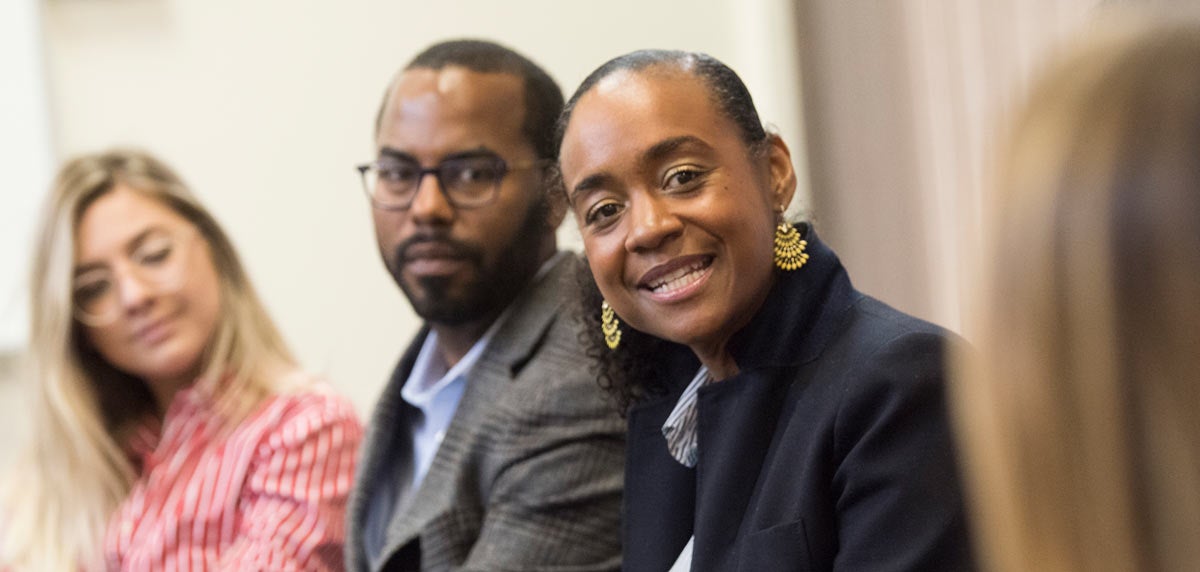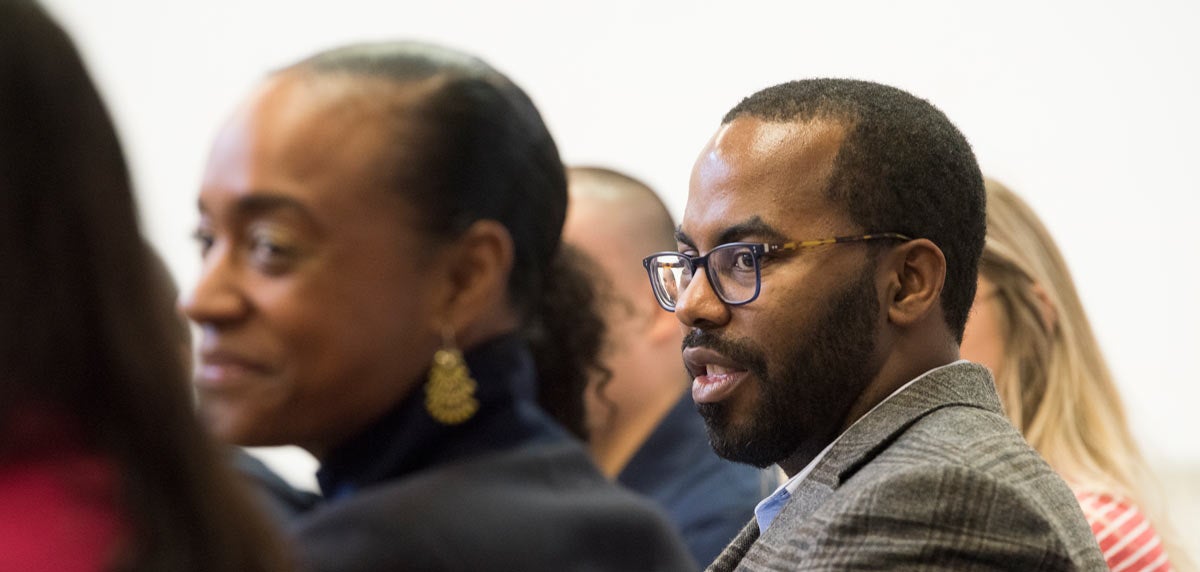Quarter at Aggie Square, an undergraduate academic program, will launch virtually this fall quarter with Transformative Justice Studies.
About 20 students have enrolled for the inaugural curriculum, which combines courses in education, sociology and African American studies with remote internships at an elementary school in the Oak Park neighborhood of Sacramento. Oak Park is in close proximity to the university’s Sacramento campus, where Aggie Square is being developed and where Quarter at Aggie Square will eventually be based.
A focus on justice
Quarter at Aggie Square launches at a time of rising national awareness of systemic racism and structural injustice, and comes amid calls from throughout higher education to take concrete steps toward change. All three programs this year, called “experiences,” will address injustice:
- Fall — Transformative Justice Studies
- Winter — Advancing Health Care Equity, focusing on access, policy and practice in medical care for underserved populations
- Spring — Bilingual Education for California, focusing on the need for Spanish-speaking K-12 teachers

Transformative Justice Studies is the brainchild of Maisha Winn and Lawrence “Torry” Winn, co-founders and co-directors of UC Davis’ Transformative Justice in Education Center. Maisha Winn is a Chancellor’s Leadership Professor and associate dean in the School of Education; Torry Winn is an assistant professor of teaching in the school.
Their approach to addressing the harm caused by racial inequities and creating restorative, transformative and humanizing learning communities builds on the framework of their five pedagogical stances: Histories Matter, Race Matters, Justice Matters, Language Matters and Futures Matter.
Together with Orly Clergé, an assistant professor of sociology at UC Davis, they will create an immersive course of study that connects historical social movements with present-day issues including redlining, gentrification, school suspensions, police brutality and community trauma.
“The timing of this new program couldn’t be more crucial,” Chancellor Gary S. May said. “This multidisciplinary approach to addressing injustices is what’s needed to help find solutions and get us past these divisive days. Strengthening community and building a better tomorrow is what Aggie Square is all about.”

A range of majors
Transformative Justice Studies has attracted students representing 13 majors, ranging from sociology, community and regional development, and African American and African studies, to art studio and wildlife, fish and conservation biology. Six students are minoring in education and two in human rights.
One of the students is senior sociology major Maile Weldon, who plans to pursue a career in justice system reform. Her motivation to contribute to building a more equitable world was intensified by the 2018 fatal shooting of Stephon Clark by police in Sacramento. A close friend of Clark’s family, Weldon said she saw firsthand what generations of racial trauma, discrimination and unjust laws can inflict upon a grieving family.
“I am so grateful for the opportunity to participate in the first ever Transformative Justice Education experience,” Weldon said. “I hope to learn to take advocacy to the next level, potentially turning it into a career.”
Historical connection
The program draws on deep historical and personal roots of community engagement between UC Davis and Oak Park. Maisha Winn, a UC Davis alumna, 1994, is the daughter of African American studies scholar and activist James A. Fisher, who taught in the history department at UC Davis from 1969 to 1974.
In 1969, Fisher and several Sacramento City College professors created the Oak Park School of Afro American Thought, a collaborative that brought college students together with Oak Park residents to offer courses such as Ghetto Economics (Consumer Problems) and Black Drama. With his wife, Cheryl A. Fisher, he also co-founded Shule Jumamose, an African-centered Saturday school for children where UC Davis students taught courses, mentored youth and volunteered.
Fifty years after her parents’ community education efforts, Maisha Winn said, the problems they worked to address remain: public education does not address the well-being of Black children, and redlining, gentrification, school suspensions, police brutality and community trauma persist.
Remote engagement
Community engagement is an essential part of the Quarter at Aggie Square plan, but, in this first quarter, amid the pandemic, such engagement will be remote. And while that presents a challenge, the history and culture of Oak Park will remain integral to the Transformative Justice Education curriculum.
“We’re finding ways to include the neighborhood and the community in the curriculum this quarter, even though we can’t have the physical presence we had planned on,” Torry Winn said. The program will begin with community circles on building restorative justice, and move on to incorporate the UC Davis Library Special Collections, guest lectures and virtual tours.
More information
Quarter at Aggie Square is a collaboration between Undergraduate Education and Aggie Square.
- Experiences
- Faculty: Learn about submitting experience proposals.
- Students: Express interest with this form.
- Contact: qas@ucdavis.edu
Media Resources
Sharon Campbell Knox, 530-752-4917, scknox@ucdavis.edu